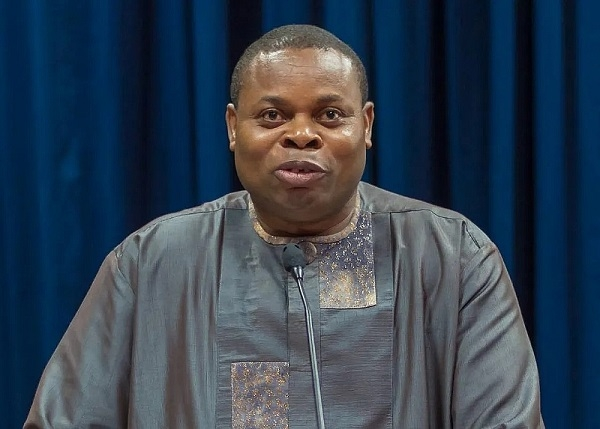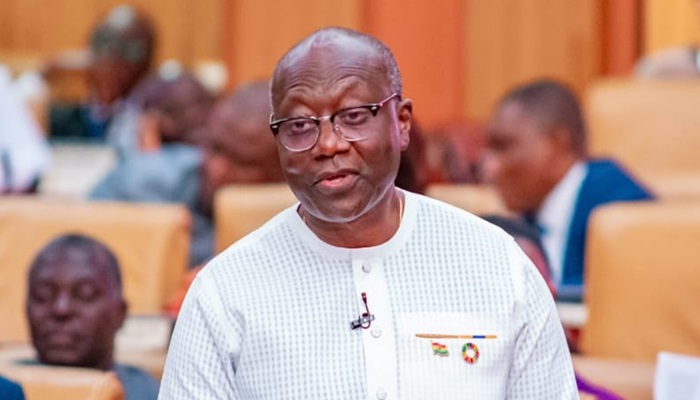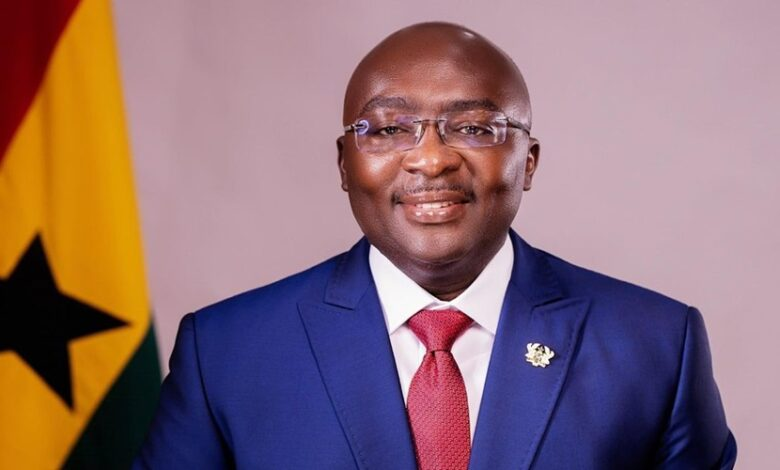Franklin Cudjoe Suggests Government Should Have Traded US Deportees for Ofori-Atta’s Extradition

In recent developments, policy analyst and governance advocate Franklin Cudjoe has asserted that the Ghanaian government should have leveraged its agreement with the United States concerning deportees to secure the extradition of former Finance Minister Ken Ofori‑Atta.
Background
Ofori‑Atta is currently the subject of multiple investigations in Ghana relating to allegations of procurement irregularities, financial mis‑management and contractual disputes dating back to his tenure as Finance Minister. Ghana’s Attorney‑General’s Department, working in conjunction with the Office of the Special Prosecutor (OSP) and other law enforcement agencies, has initiated formal extradition procedures to bring him back from the United States. Meanwhile, the U.S. authorities—including the Federal Bureau of Investigation (FBI) and the State Department—have indicated that the extradition request is procedurally sound and does not amount to political persecution.
Concurrently, Ghana has entered into an arrangement to receive West African nationals who have been deported from the U.S. under a third‑country framework. For example, the Ghanaian government has accepted batches of such individuals—initially 14, with a further 40 expected under the terms of a memorandum of understanding signed with Washington.
Cudjoe’s Argument
Cudjoe argues that accepting these deportees—under Ghana’s humanitarian and pan‑African solidarity rationale—presented potential diplomatic leverage which the government did not exploit. In his commentary, he questioned whether the acceptance of deportees should have been tied to a negotiation demand such as the return of Ofori‑Atta. In relation to the deportee deal, he remarked:
“If I were Foreign Minister I’d leverage this to negotiate a substantial reduction of the 15 % tariff imposed by Washington… speak the language they understand.
Though his stated target was tariff reduction in that specific instance, the broader point he makes is that such bilateral accommodations should come with concrete reciprocal gains for Ghana.
By extension, given the high‑profile nature of Ofori‑Atta’s case and the U.S.’s cooperation with the extradition request, Cudjoe contends the government should have seen the deportee arrangement as one piece of broader international negotiation strategy—including pressing for Ofori‑Atta’s return.
 Implications & Reflections
Implications & Reflections
-
Diplomatic Strategy: The argument raises important questions about how much diplomatic “give” should be tied to “get.” Ghana accepted the deportees reportedly in the spirit of Pan‑African solidarity and under humanitarian grounds. Whether that acceptance could or should have come with explicit conditions (such as cooperation on extradition) is a matter of policy‑making judgement.
-
Legal and Moral Dimensions: The Ofori‑Atta extradition case involves serious allegations of corruption and misuse of public funds, and the U.S. clearance of the Ghanaian request adds weight to the government’s pursuit. The deportee arrangement also comes with legal considerations—some of the deportees have initiated litigation, claiming unlawful detention and contesting Ghana’s role in their transfThis underscores the complexity of aligning humanitarian‑solidarity measures with diplomatic bargaining.
-
Public Accountability: Cudjoe’s critique reflects a broader concern about transparency: he has called on the government to clearly explain the terms and anticipated returns of these deals. For the public and the media, such deals prompt scrutiny: what are the tangible benefits, risks, and trade‑offs for Ghana?
-
Precedent for Future Deals: How Ghana handles these arrangements may set precedent for future third‑country returns or bilateral extradition negotiations. If the government accepts hosting deportees without clear reciprocal gains, it runs the risk of being seen as providing gratuitous support without economic or diplomatic return. Conversely, tying humanitarian cooperation too tightly to political outcomes may raise ethical questions.
Conclusion
Franklin Cudjoe’s suggestion—that Ghana should have sought to exchange US deportees for the extradition of Ken Ofori‑Atta—serves less as a literal policy prescription and more as a challenge to Ghana’s diplomatic calculus. It asks whether the country is fully leveraging its international engagements, and whether humanitarian‑solidarity gestures are being matched with strategic national gains.
If the government proceeds with the extradition of Ofori‑Atta and continues to engage in deportation‑arrangements, the next question will be: what has Ghana earned in return? Transparency, accountability and strategic foresight will determine whether such deals are hailed as diplomatic wins or missed opportunities.


